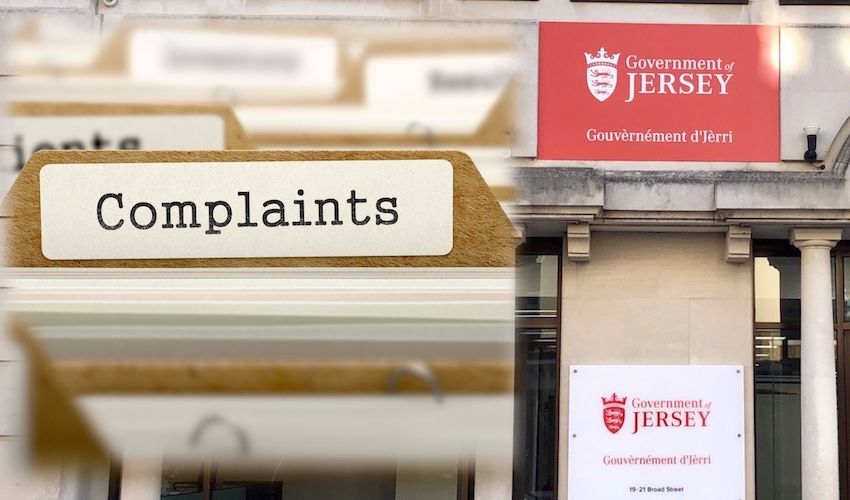


Complaints from the public are seen as a "threat" by government and "cultural barriers" are getting in the way of resolving them, a new report has said.
Comptroller and Auditor General Lynn Pamment found that, while the government has taken “important steps” to improve complaints handling, more work still needs to be done to ensure “consistent handling of and learning from complaints”.
This comes after the Government’s Executive Management Board decided to develop a Customer Feedback Policy, with a key focus on complaints handling, after the Independent Jersey Care Inquiry recommended a new system that could be easily accessed and in which children and young people could have confidence.
In her latest review of complaints handling, Ms Pamment noted that while the Policy reflects “many elements of best practice”, improvement is still needed regarding how complaints from vulnerable islanders and those with special needs are handled, as well as complaints which relate to more than one service provider.

Pictured: Lynn Pamment, the Comptroller and Auditor General.
She pointed out the absence of standardised corporate procedures to support the implementation of the Customer Feedback Policy and how departmental procedures have not been updated consistently to reflect the new Policy.
The watchdog also discovered deeper issues relating to the culture surrounding complaints within the Government.
“The effectiveness of arrangements for handling and learning from complaints is underpinned by the culture of an organisation,” Ms Pamment wrote in her report. “Complaint handling works best where there is a shared view that complaints are valued as an opportunity to learn and thereby to improve public services.
“In the context of a wider transformation of public services, the establishment of the Customer Feedback Project, development of a Customer Strategy and development of the Customer Feedback Policy, were important steps in establishing a culture that embraced complaints.
“However, it will take time and further effort to embed such a culture.”

Pictured: Take-up for an online training on complaints handlings has been low, Ms Pamment discovered.
As Ms Pamment discovered during her review, take-up for the mandatory on-line training on the Customer Feedback Policy has been low.
She also highlighted the absence of a mechanism to confirm the completeness and accuracy of data captured by the Customer Feedback Management System, noting that anecdotal evidence suggested “significant failure” to identify and log complaints received in some areas.
“For example, management has indicated that complaints associated with the new Income Tax system were not recorded in the Customer Feedback Management System during the period of transition from the old system to the new system,” Ms Pamment wrote.
Both issues, Ms Pamment said may reflect an “embedded culture that does not value complaints and sees them as a threat”.
“Some aspects of current arrangements may reinforce elements of the departmental culture that management is seeking to tackle,” she added.
“Tackling those cultural barriers is not easy but may include identifying metrics to evaluate the extent to which the Government’s objectives on complaints are understood and owned and using those to drive improvement.”

Pictured: A small corporate team provides an “element of co-ordination” in complaints handling without a defined supervisory role.
Meanwhile, the C&AG also noted how complaints are managed mostly by designated officers within departments with a small corporate team providing an “element of co-ordination” without a defined supervisory role
For the officers handling complaints, there is no clear role description, which Ms Pamment said would help ensure the employees involved have the right skills, experience, training and supervision.
While work is ongoing in the area, the C&AG noted there is no clear plan for when it will be completed.
“The Government has taken important steps to improve complaints handling,” Ms Pamment wrote.
“The adoption of a Customer Feedback Policy, investment in a Customer Feedback Management System, recruitment of a corporate team and designation of departmental staff have shown a commitment to improving complaints handling.
“More work is however required at both corporate and department levels to secure consistent handling of and learning from complaints.”
The release of the report coincides with the launch of a review by a panel of politicians aiming to probe the government's current complaints handling systems and how they can be improved.
Led by Deputy Rob Ward, the Scrutiny review will focus on how officials in positions of authority are held to account for their actions, and the ways in which members of the public are compensated when something goes wrong.
Members of the public are now being encouraged to come forward to share their experiences.
Comments
Comments on this story express the views of the commentator only, not Bailiwick Publishing. We are unable to guarantee the accuracy of any of those comments.